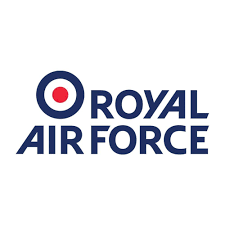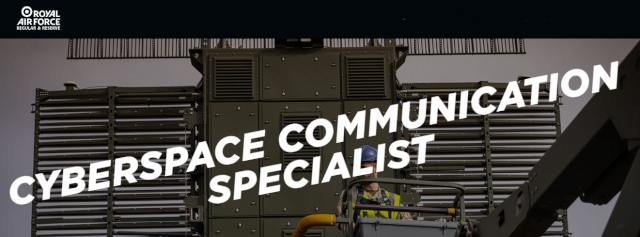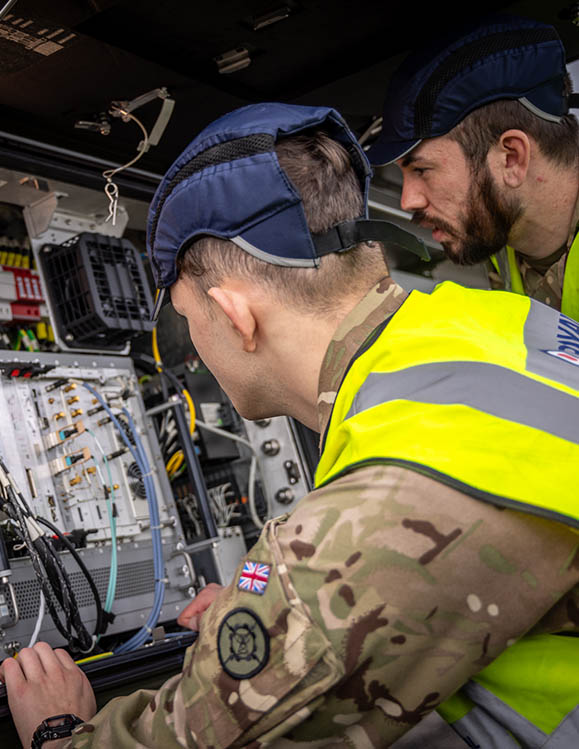 Ever wondered what it’s like to be on the front lines, keeping the Royal Air Force (RAF) connected?
Ever wondered what it’s like to be on the front lines, keeping the Royal Air Force (RAF) connected?
Today, we’re picking the brains of Sam, a Cyberspace Communication Specialist Apprentice with the RAF, to get an insider’s look at this exciting career path.
In this Q&A, Sam will share his experiences of the training, some of the day-to-day tasks of a Cyberspace Communication Specialist – and what it’s like to be an apprentice within the RAF.
So, whether you’re a tech whiz or just starting out, this is your chance to learn about a rewarding career that keeps the RAF running smoothly…
The Interview Questions
Here’s what Sam was asked…
Joining the RAF
Q: What encouraged you to join the RAF?
A: Family, the idea of an apprenticeship and on-the-job training, personal development opportunities and to travel the world.
Q: Do you come from a military background / have inspirational family members that spoke about previous military service?
A: Yes. I have several family members who served in the RAF, my dad being the most inspirational. I lived on RAF stations for a big portion of my childhood.
Q: What fears and anxieties did you have about joining the RAF?
A: The tests, assessments and responsibility after training, however I soon learned that if you tackle them head on you will succeed.
Recruitment Process / Initial Training / Specialist Training
Q: What parts of the recruitment process do you remember the most? Why?
A: PRTC at Halton, because it was exciting to get a glimpse of what you were going into and to give yourself that ‘is this what I really want?’ For me it was a yes.
Q: If you could go back, what advice would you give yourself about the recruitment process?
A: Be even fitter. I had a good level of fitness when I joined but I could have done even more which may have made PT more enjoyable!
Q: What elements of Initial Training do you remember the most? Why?
A: IFPT, as it was a chaotic first week but my intake all joined together and got through it, and the sense of achievement once we had completed it.
Q: If you could go back to dispel just one myth/preconception about Initial Training, what would it be?
A: Don’t shave your head before you start training if you are a male. You don’t need to anymore!
Q: Briefly describe what you learnt in your Specialist Trade Training.
A: Principles of communications systems, telecoms/data comms, health and safety, engineering documentation, cable repair, A6 function, deployable communications.
Q: How well did your training prepare you for your first posting?
A: It gave me a rough idea of how RAF communications work, but processes and technologies are always changing in the MOD so it was a case of adapting and learning the newest implementations from the get-go, which by the end of my 1st posting I had gained a good understanding of.
Early Career
Q: What is your trade in the RAF and how does that fit into the wider picture?
A: TG4-ICT Tech. Enabling Information and Communication Services for the RAF across the board, for example Station C4is, Ground Support Systems for air platforms and radar systems for UK ASACS.
Q: Briefly list your postings and significant detachments to date.
A: RAF Marham-C4i. Very brief detachment to Eilsen AFB, Alaska in support of Ex Red Flag RRH Staxton Wold.
Q: How did you find the transition from civilian to military lifestyle?
A: Easier than some, as I had a basic idea about service life from exposure to family.
Your Role / Part within the RAF
Q: What is your current role in the RAF?
A: LTR-25 Radar Technician, RRH Staxton Wold.
Q: Talk me through an average day.
A: We will check the radar status during shift handover from the previous shift, check for updates on jobs and action as necessary, check all relevant engineering documentation, check the servicing schedule, carry out servicing or corrective maintenance as required. Fix the radar!
Another responsibility is to prepare the radar for deployment, as it can be moved pretty much anywhere to provide a deployed air-defence capability.
Q: What responsibilities do you have? How do you think this compares to if you had an equivalent civilian job?
A: My responsibilities are to ensure the radar is serviceable when needed and deploy it as required, civilians would not get sent out to the middle of nowhere to set up a military radar, this is a unique role.
Q: What’s the best part about your current job/role?
A: Satisfaction of fixing a high-tech piece of equipment, travelling with it, and our shift patterns allow us more time off than that of a normal 8-5 day.
Professional and Personal Development
Q: What further educational opportunities have you had that relate to your role?
A: Potential for Cat C driving licence, forklift and cherry picker operator, manufacturer courses.
Q: What developmental opportunities have you had that are not trade-specific? (eg Leadership and Managerial, Instructor Qualifications)?
A: Opportunity to undertake DWT.
Q: What civilian qualifications have you earned, if any?
A: Level 2 City & Guilds fibre optics repair qualification.
RAF Life / Station Life / AT / FD / Sports / Travel.
Q: What is the work life balance like in the RAF?
A: Very good. The shift patterns enable me to spend more time with my family.
Q: What accommodation/messing facilities do you/have you used?
A: SLA, combined mess. Very good value and quality in my opinion.
Q: How helpful is the RAF Benefits Package (e.g. Medical, Dental, Disturbance/Relocation Allowances, Continuity of Education Allowance etc.) to you/your family?
A: The disturbance allowance is very good as it can help with moving costs in addition to UKPASH. GYH was also extremely useful at my old unit as I was able to get an extra day for travelling added to my leave balance.
Q: What kind of community facilities do you have on your station that you use?
A: None but we can use the ones at nearby RAF Fylingdales and Leeming. Small camps usually have the ability to take advantage of the nearby bigger camps.
Q: What sports or AT have you taken part in?
A: RAF Model Flying.
Q: What opportunities have you had to travel overseas with the RAF?
A: Alaska-Red Flag. Not somewhere you go everyday for sure.
Key Memories
Q: What do you enjoy most about your job / the RAF?
A: The combination of the benefits, skills to gain and job, which creates a career you cannot get outside the military.
Q: What are some of the most memorable experiences from your time within the RAF?
A: Station and formal Sqn events.
Q: How much do you keep in contact with friends / colleagues from previous postings?
A: Often.
The Future
Q: What is your next goal in the RAF?
A: Commision in 8 years or so to the intelligence branch (hopefully!)
Many thanks to Sam for sharing his experiences!
This Q&A has hopefully given you a taste of what it’s like to be a Cyberspace Communication Specialist Apprentice with the RAF.
Think you have what it takes to keep the RAF connected? Head over to our RAF recruitment page to learn more about eligibility requirements and how to apply.
We look forward to welcoming the next generation of RAF Cyberspace defenders!
Leave a comment
Comments currently closed. Tough break.


